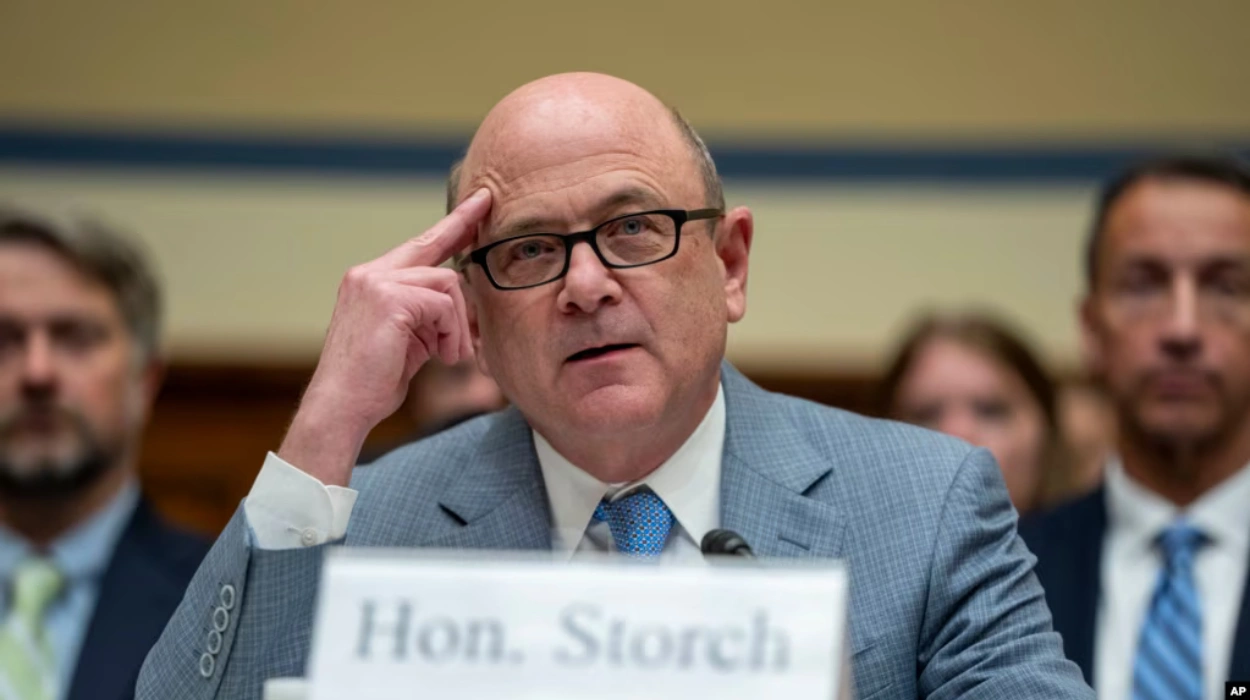US (Transatlantic Today) —Since Russia launched its full-scale invasion of Ukraine in February 2022, the U.S. Congress has appropriated $174 billion in military and humanitarian aid to help Ukraine defend itself against Russian aggression. U.S. Department of Defense Inspector General Robert Storch emphasizes that overseeing U.S. security assistance to Ukraine is his office’s top priority, with over 200 personnel dedicated to this mission.
In a recent interview with Voice of America’s Ukrainian Service, Storch discussed the complexities of ensuring oversight in a war-torn country grappling with endemic corruption and lacking a significant U.S. military presence. As of mid-August, the Special Inspector General’s report revealed 57 ongoing investigations into issues like procurement fraud, corruption, and the diversion of weapon technology.
In January, Ukraine’s SBU security service uncovered a $40 million corruption scheme involving defense ministry officials and arms suppliers. This scandal, however, did not involve U.S.-provided materials. In September 2023, Oleksii Reznikov was dismissed as Ukraine’s defense minister amid various corruption allegations, despite his strong reputation in engaging with Western allies.
Storch assured that the Pentagon collaborates closely with Ukraine’s military and President Volodymyr Zelenskyy’s government to obtain timely and accurate information for effective oversight. He noted that while initial communication was lacking at the onset of the invasion, improvements have been made, partly due to the oversight efforts.
Regarding the robustness of oversight, Storch stated that they are implementing comprehensive measures that encompass all aspects of U.S. assistance. His team, along with partners from the State Department and USAID, comprises around 300 to 400 personnel engaged in oversight.
When asked about the Ukrainian officials’ understanding of the importance of timely reporting, Storch confirmed their acknowledgment of its significance for ensuring accountability and supporting decision-making in Washington.
In terms of material transfer, Storch emphasized that U.S. personnel closely monitor the reporting obligations of the Ukrainian armed forces, ensuring proper inventory management despite the challenges posed by the wartime environment. The accountability of provided equipment has improved, though initial delays were encountered when the U.S. personnel had to exit the country.
Storch, who previously worked in Ukraine from 2007 to 2009, noted the ongoing challenges with corruption and highlighted the maturation of Ukraine’s anti-corruption institutions. The U.S. continues to provide assistance in combating corruption while ensuring oversight to track progress.
While 57 investigations are underway into various allegations, Storch indicated that none have been substantiated yet. He acknowledged the significant risk of weapon diversion but affirmed that ongoing programmatic oversight aims to address these concerns.
Lastly, addressing the Pentagon’s accounting for U.S. equipment, Storch acknowledged that initial methodologies led to overvaluation. Ongoing recommendations aim to rectify these discrepancies to ensure accurate reporting and accountability.


























